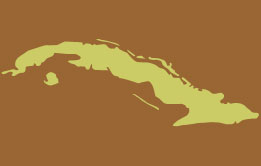Press limitations in Cuba under President Fidel Alejandro Castro Ruz are the most severe in the Western Hemisphere and among the strictest in the world. The Castro regime has long maintained close control of all information, including Cuba’s official daily newspaper, electronic and foreign media, and even the sale of personal computers. All media are dependent upon the government for both the right to operate and for funding. The expression of views contrary to the state, the revolution and its leaders, is illegal, and critics are routinely denounced as “counterrevolutionary” agents of the United States. Independent journalists and dissidents who tell their stories of local corruption and police harassment — most often by faxing them to colleagues abroad — face systematic repression, ranging from intimidation to exile, beatings, and imprisonment.
In recent years, an independent press began to emerge, numbering perhaps 100 working journalists. Hopes of increasing media freedom were raised further when, in 2002, former U.S. President Jimmy Carter delivered a speech — entirely uncensored — on Cuban television. However, in 2003, at precisely the time of the U.S.-led war in Iraq, the Castro regime launched a severe crackdown, trying and imprisoning nearly 30 journalists for decades-long terms. Those in prison have described conditions of humiliation and psychological torture including solitary confinement, inadequate medical attention, and putrid food. Remaining independent journalists, working outside of Cuban prisons, live under conditions of harassment, police intimidation, and warnings from state officials.



